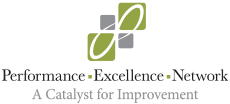
A Season for Reflection: Gratitude, Generosity, Goodness – Nov 2020
November 18, 2020
So this month’s column was to be about gratitude, in the spirit of Thanksgiving. And it still is. But an article on gratitude seemed somewhat cliché, overly simplified, and quite honestly, a bit insensitive given the circumstances. The pandemic continues to rage – accelerate, to be more accurate. I know many of you reading this have either contracted the virus, know of someone who has, or will know someone who will. Eight people just this week have shared with me that they (or their family member) has it right now. And I know a few of you who have lost a loved one to the virus; I’m sorry for your loss.
Beyond the obvious health implications, this pandemic has impacted us in many other ways. Millions have lost their jobs, have been furloughed, have been forced to take a pay cut, or are otherwise struggling financially. Foodbanks are stretched. Businesses and organizations of all sizes and types are facing challenges that were inconceivable just a year ago; many may not survive.
But you already know all of those things: for many, 2020 has been one of the worse years imaginable. It’s with that backdrop that I sit down and actually attempt to write about hope – hope for a better tomorrow. Hope for an effective vaccine and an end to this pandemic (which now seems to be, thankfully, on the horizon); hope for stabilizing of our economy and better results for our businesses, organizations, and communities; hope more happiness, well-being, connectedness, optimism, and peace in the coming year.

I think most Americans know the general history of Thanksgiving: it commemorates a harvest festival celebrated by the Pilgrims in 1621. According to the History Channel, after a first brutal winter in 1620-21, the colony was suffering from “exposure, scurvy, and outbreaks of contagious disease.” In fact, half the original Mayflower passengers perished that winter. After befriending Native Americans in the spring, colonists learned to farm, fish, and survive in the new land. So a feast of Thanksgiving was held the fall of 1621 to celebrate their harvest, their friendship with native people, their survival and optimistic outlook.
I guess 400 years later – almost to the day – Thanksgiving can mean about the same: triumph over adversity, friendship and relationships, gratitude and thanks, and hope and optimism for a better tomorrow.
So my column this month does center on gratitude, but in an appropriate context this year. And I added two other G-words, equally as important during this season of hope. As leaders, as professionals, as decent human beings, I encourage your own personal reflection during this season of thanks.
Gratitude – We all have much for which to be grateful, even in challenging times. And just being mindful of those blessing can improve our overall health.
Dr. Amit Sood, Executive Director of Resilient Options and former director of the Mind Body Initiative at the Mayo Clinic, said at PEN’s Resilience Retreat earlier this week (my paraphrase) that gratitude is the foundation of resilience and happiness: it helps you focus, improve your relationships, and increase your productivity. Dr. Sood explained that our brains naturally struggle with focus, fatigue, and fear, which results in stress and burnout. If we focus more on the things for which we are grateful, he claims we can shift from lack of focus, fatigue, and fear to more happiness and resilience.
Tip: Dr. Sood suggests that before you get out of bed and cede control of the day to email, phone calls, to do lists and ordinary every day chaos, think of five people you appreciate and send them silent gratitude. It will lower your blood pressure, change your body chemistry, and create a sense of calm to help you better handle the day’s challenges.
Generosity – As the saying goes “no matter how bad you think you have it, someone else has it worse.” I guess that’s supposed to make us all feel a little better – to give us perspective. And there’s a certain amount of truth to it: happiness and hardship are both on a continuum. So it’s appropriate – especially now with so much suffering around us and during this time of thanks – to reflect on others who may be suffering worse.
I stumbled on a quote from Dr. Ethel Percy Andrus, the founder of AARP (yeah, I’m reading those monthly bulletins now; go figure): “it is only in the giving of oneself to others that we truly live.” Indeed, we’re all part of the human race.
Tip: Donate your time, talents, or treasure this holiday season – maybe even a bit more than your normal end-of-year (and tax motivated) donations. Volunteer (in a COVID-safe way); reach out to a neighbor or a family member who could use a little help; give financial resources (or food or used clothes or household items) to those who need it more.
Today is Give to the Max Day 2020, a day to support nonprofits across the region that each are doing mission-critical work today (shameless plug: PEN is among them, trying to help organizations and communities survive if not improve during these tough times; if you’re inclined, our link is here). Give to the Max is just one day, but these worthy causes will accept your contributions any time. Pick one or two or three and support making our communities stronger.
Goodness – we need more goodness in the world. More kindness, more civility, more empathy, more peace, and more love. I was in Scouts many moons ago, and most of you have probably heard the slogan to “do a good turn daily.” Simply translated, it’s really trying to be of service to others. As leaders, it’s the concept of being a servant leader: putting others’ needs ahead of your own (a concept which, by the way, isn’t just for leaders: we all should serve others).
Dictionary.com defines goodness as having “…moral excellence, virtue, kindness, generosity.” The synonyms are insightful as well: friendliness, goodwill, grace, graciousness, honesty, integrity, mercy, morality, righteousness, benevolence, and honor, among others.
Tip: Dr. Sood also mentions that kindness can help the brain’s innate wiring to move past the tendency toward negativity and fear – and that when you are kind toward others, you become kinder toward yourself, which can nurture every aspect of your life.
He suggests as a practice that we each assume that most people we meet or see (even those who are difficult) are special in some way and are dealing with their own struggles. Seek understanding; treat them with kindness and send them a “silent good wish.”

So during this season of Thanksgiving – in these most challenging of times – be grateful for the gifts we each have received, as small or as seemingly insignificant as they may seem. And open your hearts, open your minds to others who may be dealing with professional or personal challenges as significant (or more so) than yours. Be kind; be thankful; be healthy and well.
What other insights/tips do you have regarding the importance of gratitude, generosity, and goodness? Participate in a discussion on this topic: visit our LinkedIn group to post a comment. And follow me on Twitter @LassiterBrian!
Stay healthy and never stop improving!
Brian S. Lassiter
President, Performance Excellence Network
www.performanceexcellencenetwork.org
Catalyst for Success Since 1987!
Photo credit Library of Congress, ThriveGlobal

